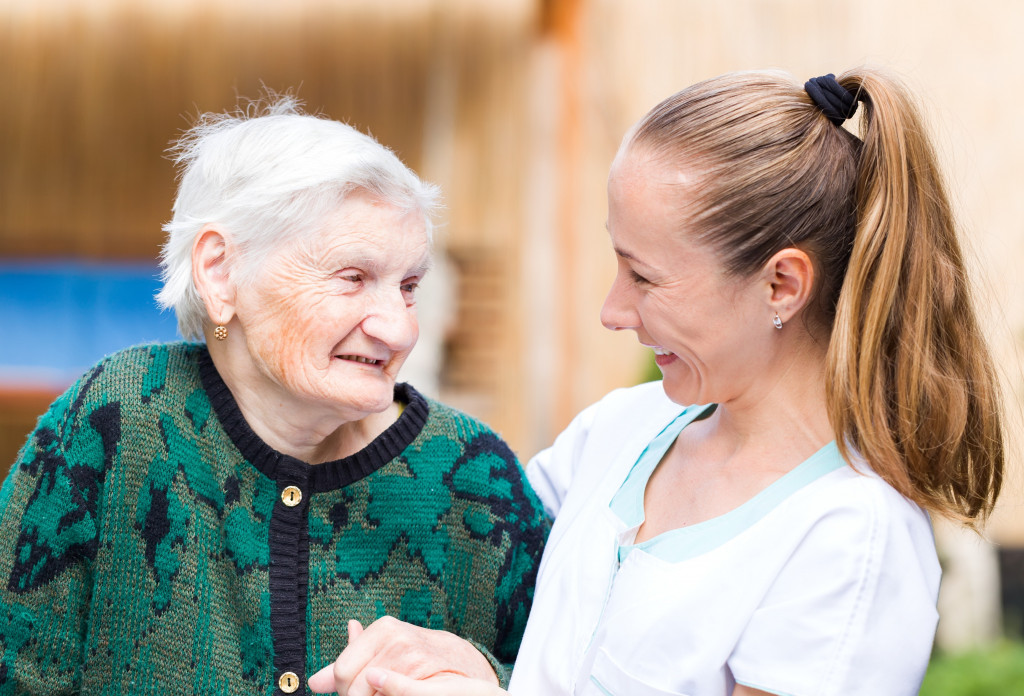- Communicate slowly and clearly, listen attentively, and look for changes in behavior or mood.
- Stimulate memory through activities such as storytelling, music, and puzzles.
- Provide a structured and predictable environment while encouraging physical activity and adequate nutrition.
- Manage medications according to doctor’s instructions and keep records of all medicines.
- Seek professional support for yourself and your loved one with dementia.
Dementia is a disease that affects not only the elderly individual but also their family and friends. Providing care for an elderly with dementia can be challenging, but it is also a responsible and rewarding task. To ensure that your loved one with dementia receives the best possible care, there are some best practices to remember. This blog post will discuss the best practices in caring for elderly with dementia.
1. Communication
Communicating with an elderly with dementia can be difficult, but it is one of the most critical aspects of their care. Speak slowly and clearly, use simple and direct language, and avoid hostile or confrontational statements. Ensure you listen attentively to your loved one’s needs and concerns and validate their feelings. They may not be able to express themselves the same way as before, so pay attention and look for changes in behavior or mood.
2. Focus on memory
Memory can be one of the main issues for those with dementia. Focus on activities that help stimulate their memory, such as storytelling, puzzles, games, and music. Even something as simple as bringing in old photos can help trigger memories and comfort your loved one.
If these activities are ineffective, you can hire memory care professionals specializing in this area. These professionals can help your loved one with memory exercises, Alzheimer’s education, and assistance in daily activities. Look for a qualified memory care facility in your area that can provide your loved one with the best care possible.
3. Provide a structured and predictable environment
Routine is essential for individuals with dementia, as it helps them maintain a sense of familiarity and security. Because of this, it is crucial to provide them with a structured and predictable environment. Here are some tips:
a. Create a daily routine and stick to it.
You want to create a routine for your loved one with dementia that is consistent and predictable. This includes meal times, bath times, and even bedtime.

b. Establish a safe and secure environment
Make sure to create a safe and secure environment for your loved one. Put locks on the doors and remove any potential hazards from the home. You should also remove any items that might be confusing or overwhelming for your loved one.
c. Limit distractions
To limit distractions, try to reduce noise and keep the environment clutter-free. Ensure your loved one’s room is comfortable and inviting, and they have access to items comforting to them.
d. Utilize visual cues
Visual cues can help your loved one with dementia better understand what is expected of them. This could include pictures or labels on items and using particular objects or colors to represent activities such as meal times.
4. Encourage physical activity and adequate nutrition
Encourage your loved one to engage in physical activity, as it helps to improve their quality of life. They can simply go for a walk or participate in other low-impact activities. Additionally, ensuring they receive a balanced and nutritious diet is essential in maintaining their overall health and well-being.

5. Consistent medication management
Individuals with dementia often require medication to manage their symptoms. Be sure to follow the doctor’s instructions for dosage and management, and keep records of all the medications given to your loved one. It is also essential to ensure that the medicines are taken regularly. You can try to create a medication schedule, as this is often easier for the elderly with dementia to remember.
6. Seek professional support
Caring for an elderly with dementia takes a lot of patience, energy, and time, and caregivers also need to take care of themselves. Seek professional support from doctors, nurses, support groups, or professionals trained in dementia care. They can provide assistance, advice, and support for the caregiver and the elderly. You can even look into respite care, temporarily relieving the primary caregiver.
Caring for an elderly with dementia can be stressful and challenging, but following best practices can make it more manageable. Communication, memory stimulation, routine and consistency, physical activity, medication management, and professional support are all key components of providing the best care possible for an elderly with dementia.
With proper care and support, the elderly can still lead a meaningful life despite their condition. By keeping these best practices in mind, you can ensure that your loved one with dementia receives the best care possible.

